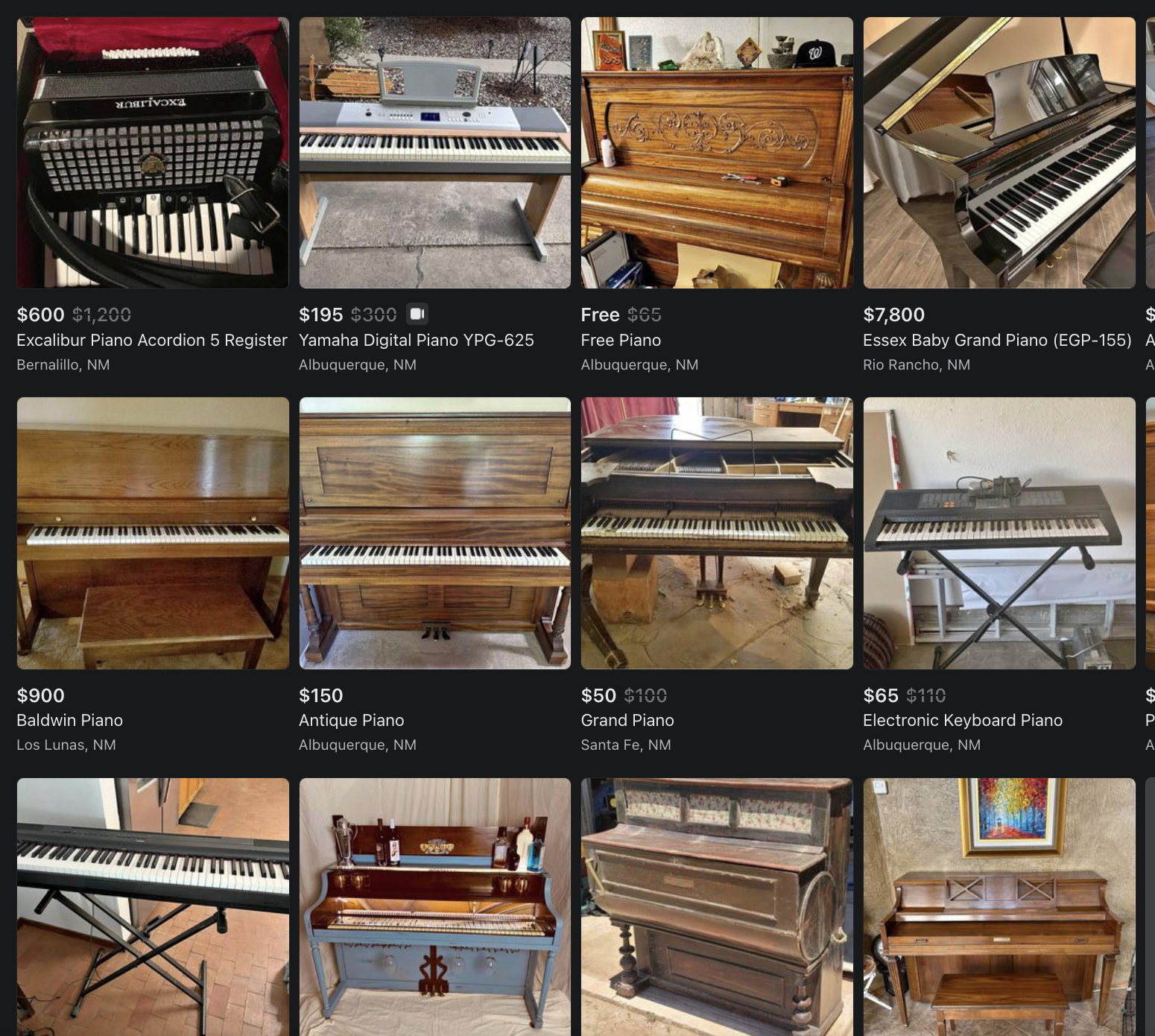When buying a used piano, there are several important factors to consider to ensure you make an informed decision. Here’s a checklist of things to be aware of or look out for:
- Research: Gather information about different piano brands, models, and their reputation for quality and longevity. This will help you set reasonable expectations and make a more informed decision.
- Budget: Determine your budget range for buying a used piano. Consider additional costs such as transportation, tuning, and any potential repairs.
- Piano Type: Decide whether you want an acoustic piano or a digital piano. Acoustic pianos produce sound mechanically, while digital pianos use electronic sound reproduction. Each type has its own pros and cons.
- Seller Reputation: If buying from an individual, research the seller’s credibility and ask for references if possible. If purchasing from a dealer, check their reputation and customer reviews.
- Condition: Inspect the piano thoroughly for any signs of wear, damage, or poor maintenance. Pay attention to the cabinet, keys, pedals, strings, and soundboard. Consider hiring a professional piano technician to evaluate the instrument’s condition.
- Age: Determine the piano’s age as it can affect its overall condition and value. Older pianos might require more maintenance and repairs.
- Tuning Stability: Play each key and listen for any unusual sounds or vibrations. Check if the piano holds its tuning well or if it goes out of tune quickly.
- Playability: Evaluate the touch and responsiveness of the keys. Make sure they feel consistent across the entire keyboard and that all the keys work properly.
- Sound Quality: Play the piano and listen attentively to its tone. Look for a well-balanced sound, good resonance, and clarity. A piano that sounds dull or muted might require significant restoration work.
- Repairs and Maintenance: Inquire about the piano’s history of repairs and maintenance. Ask for any available records or receipts. Check if the piano has been regularly tuned and serviced.
- Price Comparison: Research the market value of similar pianos in your area. Compare prices to ensure you are getting a fair deal based on the piano’s condition and age.
- Warranty: If buying from a dealer, inquire about any warranty or return policy they offer. This can provide additional peace of mind and protection if issues arise after the purchase.
- Moving and Transportation: Consider the logistics and costs associated with moving the piano to your desired location. Acoustic pianos can be heavy and require professional movers.
- Future Resale Value: Although not an immediate concern, consider the potential resale value of the piano if you plan to upgrade or sell it in the future.
By keeping these factors in mind and conducting thorough research, you’ll be better equipped to make an informed decision and find a used piano that suits your needs and preferences.
